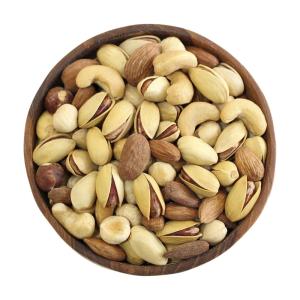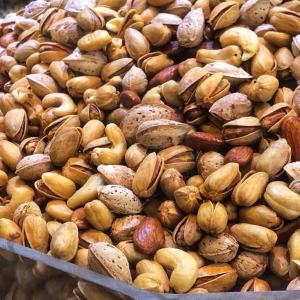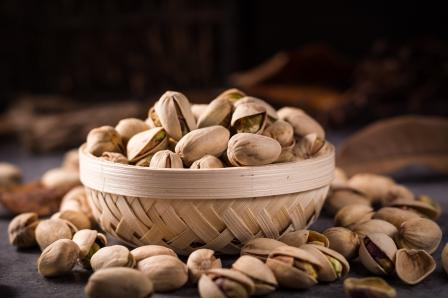Welcome to the fascinating world of betel nuts, where tradition meets controversy and biology intertwines with culture. For centuries, the betel nut, scientifically known as Areca catechu, has been a staple in various Asian, Pacific, and African cultures. Despite its widespread use and cultural significance, the betel nut remains a subject of intrigue and debate due to its potential health risks and addictive properties. In this comprehensive guide, we will delve into the history, cultivation, consumption, health effects, and cultural significance of betel nuts. Join us on a journey to uncover the bitter and bold truth about this enigmatic nut. History and Cultivation: The betel nut has a rich cultural history that dates back thousands of years. Originating in Southeast Asia, the betel nut was first documented in ancient Sanskrit texts as early as 3000 BC. It was revered for its stimulating properties and association with social gatherings and religious ceremonies. Over time, the betel nut spread to regions such as India, Sri Lanka, the Philippines, and Papua New Guinea, where it became deeply ingrained in the cultural fabric of these societies. Cultivating betel nuts is a labor-intensive process that requires specific climatic conditions. Betel nut palm trees thrive in tropical and subtropical regions with high humidity and rainfall.

.
 The trees can grow up to 30 meters tall and produce clusters of betel nuts, which are actually seeds encased in a fibrous shell. Harvesting betel nuts involves climbing the tall palm trees and carefully cutting down the ripe clusters, which are then processed to extract the seeds for consumption. Consumption and Preparation: In many cultures, the betel nut is traditionally consumed by chewing it along with other ingredients, such as betel leaves, slaked lime, and tobacco. The preparation of betel nut quids, also known as paan, varies from region to region and often involves intricate rituals and ceremonies. The process of preparing a betel nut quid typically begins with folding a betel leaf and placing a slice of areca nut, slaked lime, and other flavoring agents such as cardamom or menthol. The quid is then chewed slowly to release the stimulating effects of the betel nut. The consumption of betel nuts is deeply ingrained in social customs and traditions in many cultures. It is often offered as a gesture of hospitality or as a symbol of respect during ceremonies and social gatherings. In some communities, betel nut chewing is considered a mark of status and is associated with auspicious occasions such as weddings and religious festivals. Health Effects and Controversies: While the betel nut has been celebrated for its stimulating properties, it is also associated with a range of health risks and controversies. The primary psychoactive component in betel nuts is arecoline, a potent alkaloid that acts on the central nervous system to produce feelings of euphoria and alertness.
The trees can grow up to 30 meters tall and produce clusters of betel nuts, which are actually seeds encased in a fibrous shell. Harvesting betel nuts involves climbing the tall palm trees and carefully cutting down the ripe clusters, which are then processed to extract the seeds for consumption. Consumption and Preparation: In many cultures, the betel nut is traditionally consumed by chewing it along with other ingredients, such as betel leaves, slaked lime, and tobacco. The preparation of betel nut quids, also known as paan, varies from region to region and often involves intricate rituals and ceremonies. The process of preparing a betel nut quid typically begins with folding a betel leaf and placing a slice of areca nut, slaked lime, and other flavoring agents such as cardamom or menthol. The quid is then chewed slowly to release the stimulating effects of the betel nut. The consumption of betel nuts is deeply ingrained in social customs and traditions in many cultures. It is often offered as a gesture of hospitality or as a symbol of respect during ceremonies and social gatherings. In some communities, betel nut chewing is considered a mark of status and is associated with auspicious occasions such as weddings and religious festivals. Health Effects and Controversies: While the betel nut has been celebrated for its stimulating properties, it is also associated with a range of health risks and controversies. The primary psychoactive component in betel nuts is arecoline, a potent alkaloid that acts on the central nervous system to produce feelings of euphoria and alertness.
..
However, prolonged use of betel nuts has been linked to a variety of health issues, including oral cancer, gum disease, cardiovascular problems, and addiction. One of the most significant health risks associated with betel nut chewing is oral cancer. Studies have shown that the combination of areca nut, slaked lime, and tobacco can increase the risk of developing oral squamous cell carcinoma, a type of cancer that affects the mouth and throat. The carcinogenic properties of betel nut ingredients are thought to be exacerbated by the alkaline pH of the chewed quid, which can cause irritation and inflammation in the oral cavity. In addition to oral cancer, betel nut chewing has been linked to a higher prevalence of gum disease, tooth decay, and cardiovascular problems. The abrasive nature of betel nut particles and the alkaline pH of the quid can damage tooth enamel and irritate gum tissues, leading to periodontal disease and cavities. The stimulant effects of betel nuts can also elevate heart rate and blood pressure, increasing the risk of cardiovascular complications in long-term users. Furthermore, betel nut addiction is a serious concern in many communities where betel nut chewing is prevalent. The alkaloids present in betel nuts can create a physical and psychological dependence, leading to cravings and withdrawal symptoms when consumption is reduced or stopped. This addiction can have significant social, economic, and health consequences for individuals and communities affected by betel nut use.
…
 Cultural Significance and Social Impact: Despite the health risks associated with betel nut chewing, its cultural significance and social impact cannot be understated. In many societies, betel nuts are deeply embedded in social customs, rituals, and traditions that have been passed down through generations. The act of sharing a betel nut quid is a symbol of hospitality, friendship, and kinship, fostering connections and strengthening social bonds. The cultural value of betel nuts also extends to economic and agricultural aspects in regions where betel nut cultivation is a significant industry. For many smallholder farmers in tropical countries, betel nut cultivation provides a vital source of income and livelihood, supporting rural communities and contributing to the local economy. However, the sustainability of betel nut farming has come under scrutiny due to environmental concerns, deforestation, and water scarcity in some regions. In recent years, efforts have been made to raise awareness about the health risks of betel nut chewing and to promote healthier alternatives. Public health campaigns, educational programs, and regulations have been implemented to discourage betel nut consumption and reduce the prevalence of associated health problems. However, changing deeply ingrained habits and cultural practices poses a significant challenge and requires a multidimensional approach that considers social, economic, and psychological factors.
Cultural Significance and Social Impact: Despite the health risks associated with betel nut chewing, its cultural significance and social impact cannot be understated. In many societies, betel nuts are deeply embedded in social customs, rituals, and traditions that have been passed down through generations. The act of sharing a betel nut quid is a symbol of hospitality, friendship, and kinship, fostering connections and strengthening social bonds. The cultural value of betel nuts also extends to economic and agricultural aspects in regions where betel nut cultivation is a significant industry. For many smallholder farmers in tropical countries, betel nut cultivation provides a vital source of income and livelihood, supporting rural communities and contributing to the local economy. However, the sustainability of betel nut farming has come under scrutiny due to environmental concerns, deforestation, and water scarcity in some regions. In recent years, efforts have been made to raise awareness about the health risks of betel nut chewing and to promote healthier alternatives. Public health campaigns, educational programs, and regulations have been implemented to discourage betel nut consumption and reduce the prevalence of associated health problems. However, changing deeply ingrained habits and cultural practices poses a significant challenge and requires a multidimensional approach that considers social, economic, and psychological factors.




Your comment submitted.